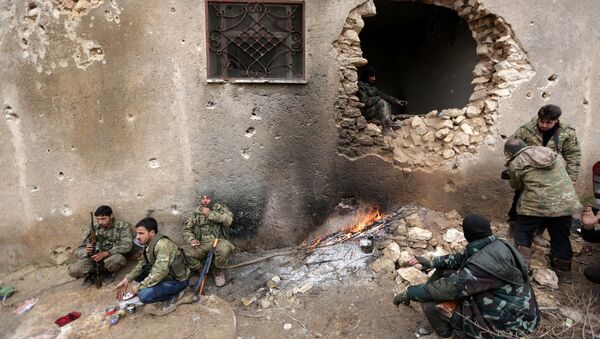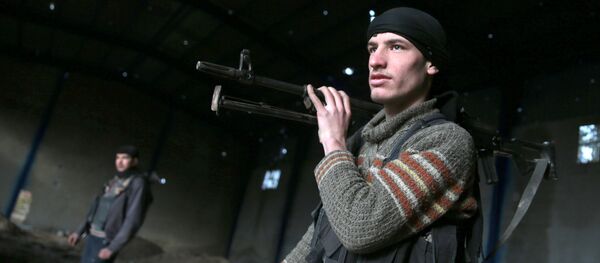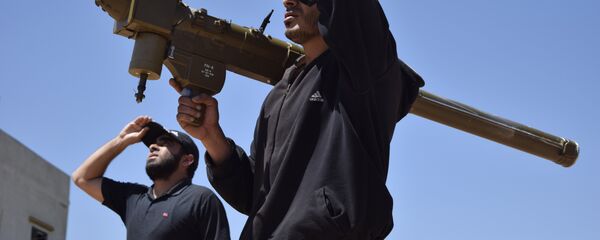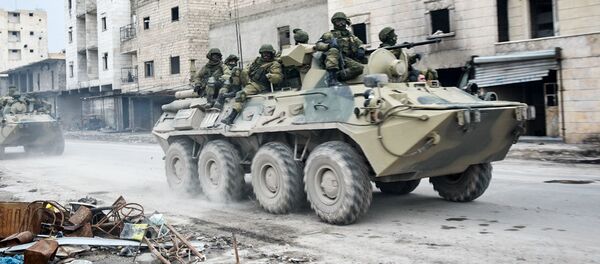The conference brought together Nordic and UN aid groups to discuss the humanitarian situation in the war-torn Arab republic and ways to tackle the problem.
Speaking to Radio Sputnik, Krohn bemoaned the fact that the root causes of the humanitarian catastrophe and real perpetrators behind the ongoing crisis remained beyond the scope of the meeting.
The Finnish political commentator remarked that Syria itself was barely presented at the conference.
"It was a conference of countries which are not actually committed to the peaceful solution of the Syrian conflict," Krohn believes.
"There were some commitments to supporting the UN efforts but basically the whole aim of the conference was actually not to support Syria. It was aimed at supporting structures which are trying to take over the Syrian state. It was [aimed] at supporting the so-called Syrian revolution," he said.
Drawing parallels between the UN's Helsinki conference and the Astana peace talks on Syria, Krohn highlighted the importance of the steps taken by Moscow, Tehran and Ankara to bring the warring parties to the negotiating table.
According to Krohn, the UN event is likely to prove inefficient in terms of improving the situation on the ground.
"There are constant complaints about the UN not having access to besieged areas and complaints about bombing by Syria and by Russia and attacking UN aid convoys but this is not actually true. The UN is free to operate in the government-held areas, so the aid is moving from the government areas to rebel areas. But the propaganda here is to accuse the Syrian government and Russia of somehow preventing the aid but I see this not being true," Krohn said, referring to UN humanitarian chief Stephen O'Brien's recent remarks.
Addressing the Helsinki conference O'Brien underscored that "the humanitarian and protection crisis [in Syria] remains one of the most complex and volatile in the world."
Good panel discussion in Helsinki on pursuing humanitarian & resilience support in #Syria. Working w/local partners should be our priority pic.twitter.com/OkYANrnQDD
— Stephen O'Brien (@UNReliefChief) 24 января 2017 г.
"But all of us engaged in meeting immediate needs know it is insufficient for those levels of needs and the difficulties and the barriers continually put in the way of the UN and all our partners in delivering humanitarian relief," O'Brien stressed.
In this context it looks especially surprising why international organizations failed to provide aid to the Syrian city of Aleppo, liberated more than a month ago.
"A month has passed since the liberation of Aleppo. However, the international humanitarian organizations still do not provide real assistance to the civilian population. Meanwhile, peaceful life in the city is restoring," Russian Defense Ministry spokesman Gen. Maj. Igor Konashenkov told a press conference on January 14.
#SYRIA Rus MoD calls upon the international organizations to provide real humanitarian help to the Syrian populationhttps://t.co/HRwAVgFlRK
— Минобороны России (@mod_russia) 18 января 2017 г.
However, Aleppo civilians have been receiving the most aid from the Russian Center for Reconciliation, the International Committee of the Red Cross and Syrian Arab Red Crescent, he stressed.
Krohn believes that the Syrian humanitarian crisis is a tool of those who seek to undermine the Syrian statehood.
"I think that the humanitarian crisis is a tool for the West to undermine Syrian sovereignty. It gives them an excuse to support these groups which are trying to destroy the Syrian state," the Finnish political commentator assumed.
So what should the international community do to tackle the Syrian crisis?
"First of all they should stop arming terrorists. The main role of the so-called international community, or the Western community, has been funding, training, arming and leading the Syrian rebels and, in fact, Syrian terrorists… This is the main obstacle to peace in Syria," Krohn emphasized.
Have you heard the news? Sign up to our Telegram channel and we'll keep you up to speed!




